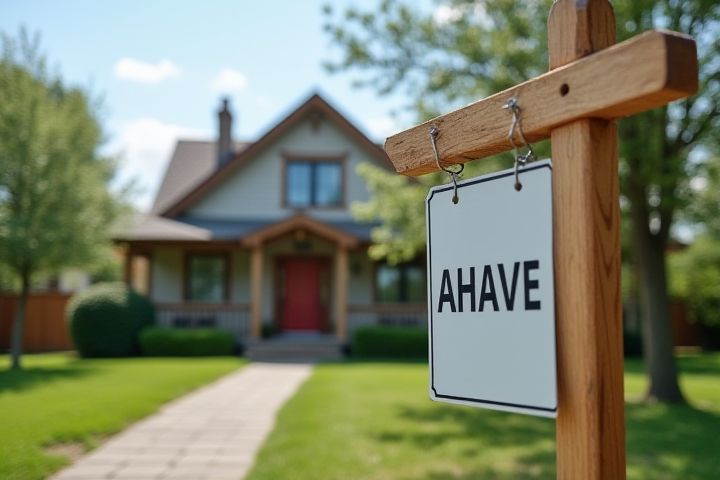
Buying a house during a recession can present unique opportunities and risks. Home prices may decline due to decreased demand, providing you with the chance to purchase property at a lower price than in a booming market. However, it's crucial to assess your financial stability, as job security can be more tenuous during economic downturns. Mortgage rates may fluctuate, and lending requirements might tighten, impacting your ability to secure financing. Conduct thorough research and consult real estate professionals to ensure informed decision-making in this challenging economic landscape.
Is It Safe To Buy A House During A Recession
Potential for Lower Home Prices
Buying a house during a recession can present an opportunity for lower home prices, often ranging from 5% to 20% less than their pre-recession values. Economic downturns frequently lead to increased inventory, as many sellers may need to liquidate their properties quickly, giving you leverage in negotiations. Mortgage rates can also fluctuate, potentially offering more favorable terms for buyers if you act strategically. However, it's crucial to assess your financial stability and job security to ensure you can manage long-term commitments amid economic uncertainty.
Decreased Competition
Buying a house during a recession often presents the advantage of decreased competition among buyers. With fewer individuals seeking properties, you can negotiate better deals and secure a home at a lower price than in a bustling market. This reduced demand can lead to longer listing periods, giving you the flexibility to take your time in making decisions without the pressure of multiple offers. Moreover, lenders may offer more favorable terms to attract buyers, further enhancing the potential benefits of your home purchase during economic downturns.
Interest Rate Fluctuations
Buying a house during a recession can be safe, particularly if you understand interest rate fluctuations and their impact on mortgage affordability. Typically, recessions lead central banks to lower interest rates, which can make borrowing cheaper and potentially offset declining home values. However, you should assess your financial stability, as job security may be uncertain during economic downturns. Monitoring market trends and economic indicators will enable you to make an informed decision about your real estate investment.
Employment Stability Considerations
During a recession, assessing employment stability becomes crucial when considering purchasing a house. Economic downturns typically lead to higher unemployment rates, which can impact your job security and income stability. According to the Bureau of Labor Statistics, the unemployment rate can rise significantly, reaching as high as 10% in severe recessions. You should evaluate your job sector's resilience, looking at the potential for layoffs and overall job growth trends, ensuring your income can support mortgage payments even in challenging times.
Long-Term Investment Perspective
Buying a house during a recession can actually be a wise long-term investment strategy. Historical data shows that property values tend to recover and appreciate over time, with a 5% annual average increase in home prices post-recession. You may benefit from lower home prices and reduced competition, allowing you to negotiate better deals. Investing in real estate during economic downturns often leads to building equity and generating passive income, making it a potentially lucrative decision for your financial future.
Financial Resilience Assessment
During a recession, assessing financial resilience is crucial before purchasing a house. Analyze your income stability, savings, and debt-to-income ratio; ideally, your ratio should be below 36% for mortgage approval. It is advisable to have at least three to six months of living expenses in savings, creating a buffer against economic uncertainties. By thoroughly evaluating these factors, you can make a more informed decision that aligns with your long-term financial health.
Housing Market Variability
Buying a house during a recession can present unique advantages, particularly in terms of housing market variability. Typically, home prices may decline or stabilize, allowing you to find properties at more favorable prices compared to a booming market. Additionally, mortgage rates often decrease during economic downturns, making financing more affordable for buyers. However, it is essential to consider factors such as job security and long-term financial stability before making your purchase, as these elements can significantly impact your investment success.
Mortgage Approval Challenges
Buying a house during a recession can present specific mortgage approval challenges. Lenders may tighten their credit requirements, making it more difficult for you to secure financing with favorable terms. Job stability and income verification become crucial factors; any instability in your employment could raise red flags for lenders. Understanding these challenges can help you better prepare for the home-buying process and improve your chances of mortgage approval.
Renovation and Maintenance Costs
Buying a house during a recession can offer opportunities, but it also brings unique challenges, particularly concerning renovation and maintenance costs. During economic downturns, property prices may drop, allowing you to enter the market with potentially lower initial investment; however, you must consider the additional financial strain of renovations, as materials and labor may still be expensive. As a new homeowner, your focus should be on assessing not only the property's current condition but also anticipating future maintenance needs, which can be unpredictable and costly. Ensuring that you have a budget set aside for both immediate repairs and long-term upkeep is crucial for maintaining the value of your investment during uncertain economic times.
Local Economic Conditions
Local economic conditions play a crucial role in determining the safety of purchasing a house during a recession. For instance, if your area boasts a stable job market and a low unemployment rate of around 3%, investing in real estate could yield positive returns. Conversely, a region facing high unemployment, such as 10% or more, may experience declining property values, making it riskier to buy. Analyze housing trends, vacancy rates, and local economic output to make an informed decision about your potential investment.
